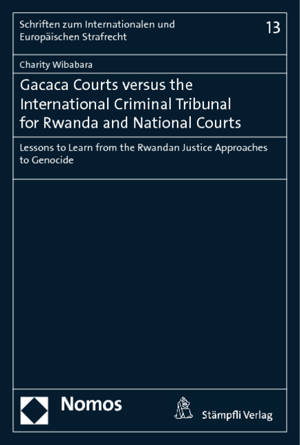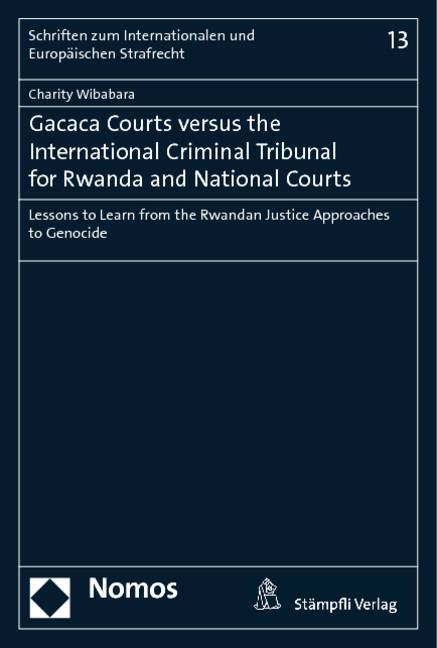
- Afhalen na 1 uur in een winkel met voorraad
- Gratis thuislevering in België vanaf € 30
- Ruim aanbod met 7 miljoen producten
- Afhalen na 1 uur in een winkel met voorraad
- Gratis thuislevering in België vanaf € 30
- Ruim aanbod met 7 miljoen producten
Zoeken
Gacaca Courts versus the International Criminal Tribunal for Rwanda and National Courts
Lessons to Learn from the Rwandan Justice Approaches to Genocide
Charity Wibabara
€ 79,95
+ 159 punten
Omschrijving
The magnitude and the nature of the human rights violations that engulfed Rwanda in 1994 prompted both the Rwandan government and the international community to establish different accountability mechanisms in order to hold perpetrators accountable. At the international level, the UN established the International Criminal Tribunal for Rwanda (ICTR) to try those bearing the greatest responsibility, the Rwandan national courts were to deal with so-called category one offenders, whereas Gacaca courts initially handled the bulk of cases that could not be handled by the ICTR and national courts (so-called category two and three perpetrators). Therefore, Rwanda offers a unique opportunity to analyse the interplay of criminal justice systems on different levels.Against this background, the study, which is divided into seven chapters, engages in disentangling the conflicting as well as overlapping elements the three justice mechanisms entail.Despite the already existing scholarship on this topic, the book offers new insights into the domestic case law of Rwanda which is under researched in comparison to the work of the ICTR. With this it adds a valuable new perspective to the international debate from the viewpoint of a Rwandan legal scholar.This work is supported by DAAD.
Specificaties
Betrokkenen
- Auteur(s):
- Uitgeverij:
Inhoud
- Aantal bladzijden:
- 298
- Taal:
- Engels
- Reeks:
- Reeksnummer:
- nr. 13
Eigenschappen
- Productcode (EAN):
- 9783848712472
- Uitvoering:
- Paperback
- Afmetingen:
- 153 mm x 230 mm
- Gewicht:
- 458 g

Alleen bij Standaard Boekhandel
+ 159 punten op je klantenkaart van Standaard Boekhandel
Beoordelingen
We publiceren alleen reviews die voldoen aan de voorwaarden voor reviews. Bekijk onze voorwaarden voor reviews.








